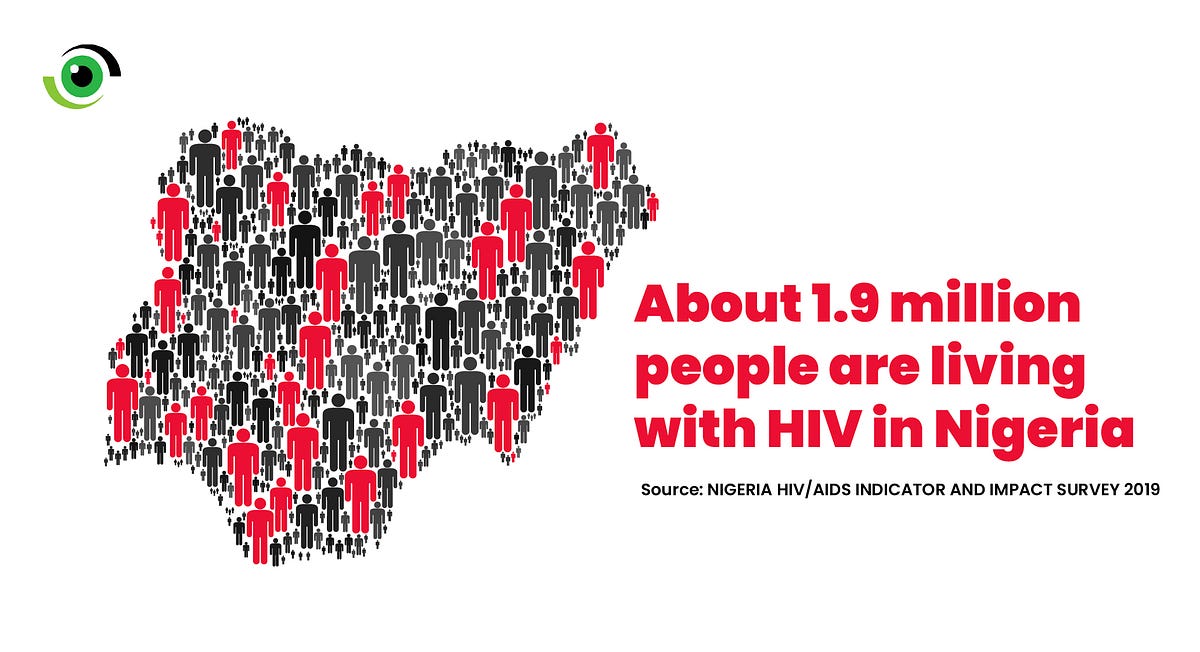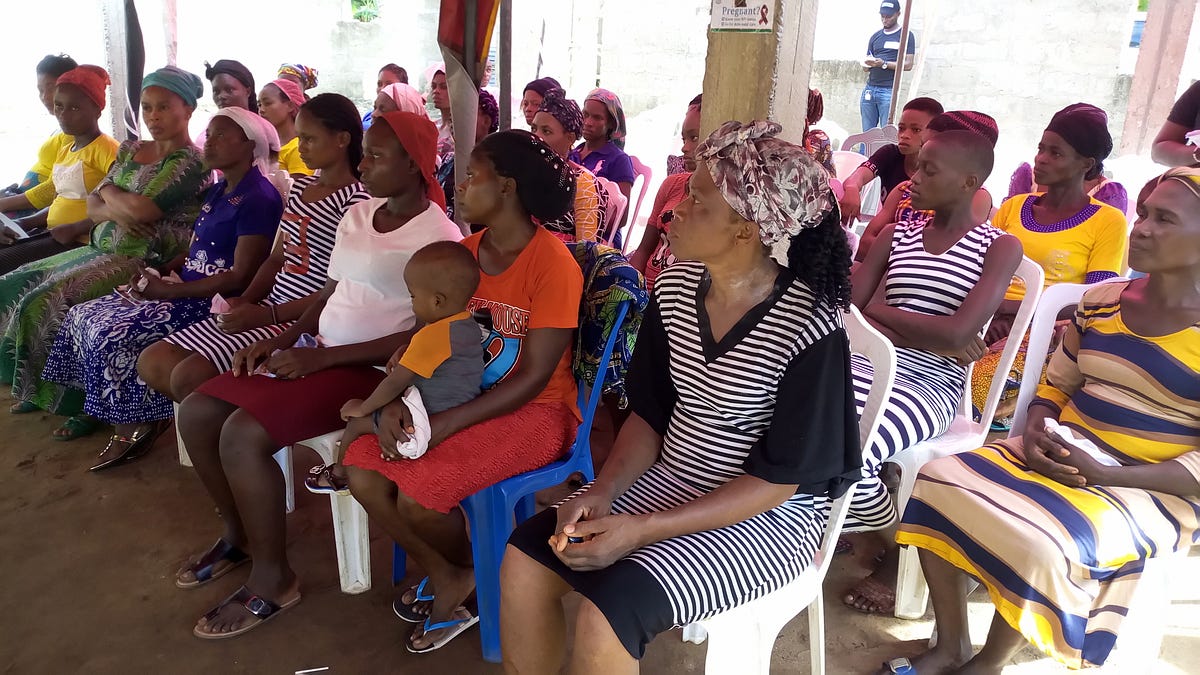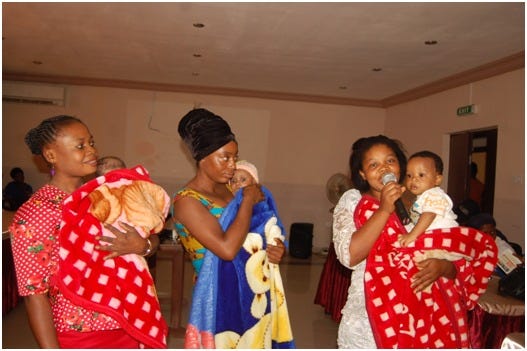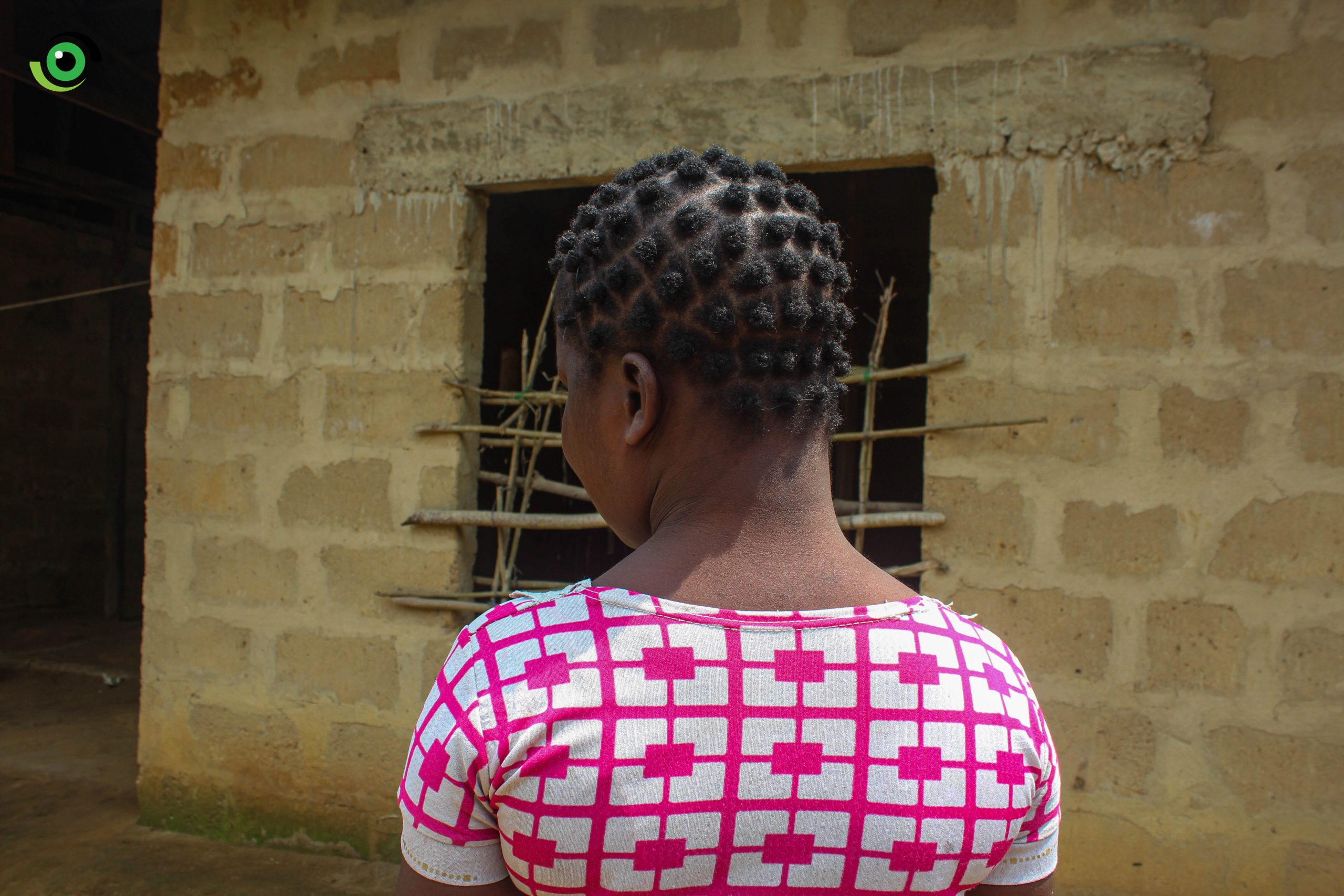By Kelechukwu Iruoma (Lead Writer)
Eme Okon was two months pregnant with her third child when she started attending antenatal care (ANC) at the Eyokponung Primary Health Centre (PHC) in Akwa Ibom State of southern Nigeria. This was her first time ever; having not attended ANC during her first and second pregnancies. During her first visit, she tested positive for Human Immunodeficiency Virus (HIV). The health workers explained the virus to her and how to manage it, but Okon was afraid her unborn baby would be infected. “At that time, they gave me antiretroviral drugs and I continued attending antenatal care at the health centre”, she said.
The 2018 Nigeria Demographic Health Survey (NDHS) revealed that, out of every 100,000 live births, 512 women will die while giving birth yearly. According to Nkoyo Otobong, officer-in-charge of Eyokpunung PHC, lack of ANC is a contributing factor to maternal mortality in Nigeria. The United Nations Programme on HIV/AIDS (UNAIDS) has reported that Nigeria has the second-highest HIV rate in the world. UNAIDS also said that about two-thirds of new HIV infections in West and Central Africa in 2019 were estimated to have occurred in Nigeria. The National Agency for the Control of AIDS in its Nigeria HIV/AIDS Indicator and Impact Survey 2019 estimated that about 1.9 million people are living with HIV in Nigeria.

HIV burden in Akwa Ibom State
Of the six states that account for 41% of people living with HIV in Nigeria, Akwa Ibom ranks the highest with a prevalence rate of 5.5%. Many positive pregnant women are unaware of their status and the disease is often transmitted to their children. An estimated quarter (26.9%) of all cases of mother-to-child transmission of HIV in the world happen in Nigeria, according to Avert. In 2016, about 32% of pregnant women living with HIV received antiretroviral treatment to Prevent Mother-to-Child Transmission (PMTCT) and only 34.7% were tested for HIV as part of their antenatal care. Improving uptake of ANC and PMTCT to reduce mother-to-child transmission of HIV has become a major target for government, health workers, and civil society organisations in Nigeria.
This led to the creation of the Healthy Mother Healthy Child Project in Akwa Ibom State implemented by the Antof Rural Resource Development Centre (ARRDEC) and funded by the TY Danjuma Foundation. “The idea behind the Healthy Mother Healthy Child project is to encourage pregnant women to attend antenatal care at least four times during the course of their pregnancy”, said Elizabeth Adebanjo, ARRDEC Programme manager.

Before the project launch, ARRDEC carried out a baseline assessment from April 2018 to February 2019 in targeted PHCs and found out that ANC and PMTCT uptake was low because pregnant women often did not make return visits for ANC. At the end of the assessment period, of the 226 pregnant women enrolled for ANC, only 30 (13%) of the women made at least 4 ANC visits while 45 (20%) HIV-positive pregnant women enrolled for PMTCT.
Poverty and lack of awareness are major reasons pregnant women in targeted PHCs, communities, and local governments refuse to attend ANC. “We identified transportation to the PHCs and payment for registration as challenges. They [pregnant women] must pay for registration cards, which were between N500 and above depending on the PHCs. By the time we came across the TY Danjuma Foundation, we proposed we wanted to get more pregnant women to the PHC for ANC”, Adebanjo added.
Addressing challenges to increase ANC and PMTCT uptake
In March 2019, ARRDEC launched phase one of the project in three local government areas. PHCs that offered comprehensive ANC and PMTCT services in Oti-Oro and Ekeya communities of Okobo LGA; Eyoabasi, Idua Assang, and Esin Ufot Communities of Oron LGA; and Eyokponung, Eyibia, and Ekim Communities of Udung Uko LGA were used. ARRDEC worked with community volunteers who visited the communities to create awareness and enlighten pregnant women about the benefits of ANC, also working with the staff of PHC facilities to provide comprehensive ANC services. “To enable them to attend ANC four times, we covered transportation costs to the PHCs and paid for their registration and when they attended ANC at least four times, we gave them mama kits. For those who are HIV positive and those who refused to continue with treatment, we gave them transportation and a special pack”, said Adebanjo.

The project also worked with Traditional Birth Attendants (TBA) and male partners of pregnant women. The TBAs were trained to drive the demand for ANC and PMTCT. “At the grassroots level, TBAs are known to be the closest to pregnant women and do care for them but they cannot provide ANC services. The project built their capacity to direct the pregnant women to the PHCs for ANC and PMTCT services”, Adebanjo said. She also added that special meetings ‘Men Care Forums’ were held with the male partners of pregnant women. The aim of these meetings was to sensitise the men on the importance of ANC on reproductive health in order for them to encourage and support their wives for ANC attendance.
It was the Healthy Mother Healthy Child project Okon benefitted from that led to her HIV diagnosis, and then enrollment for PMTCT. “I was very happy to have received the help from ARRDEC. I did not know about ANC until I was asked to visit the hospital for ANC”, said 30-year-old Okon. “When I realised I was positive, I started to receive the treatment until I gave birth”. She attended three ANC visits and continued to take her drugs. By the time she delivered, her child was HIV negative. “I received a mosquito net, tissues, soap, and other things. I started to encourage others to attend ANC for quality healthcare service”, the mother of four said.

Adebanjo said that one of the challenges the project encountered was that some of the HIV-positive pregnant women refused to continue the PMTCT. “While some of them discontinued their medications, others threw the medication away saying their pastors said they should not take the medication anymore”, she said. To address this, the ARRDEC staff would go with the community volunteers to the communities to speak with the HIV-positive pregnant women to convince them to continue their treatment. Another challenge was the fact that some of the health workers working in the PHCs discriminated against and stigmatised some of the pregnant women who were HIV positive, which discouraged them from attending ANC and PMTCT. Adebanjo said ARRDEC discontinued working with the PHCs whose staff discriminate against HIV-positive pregnant women.
By the end of the first phase of the project in December 2019, ARRDEC said 735 pregnant women registered for ANC at the targeted PHCs, which showed a 225% increase. Of this number, about 338 (46%) pregnant women made at least 4 ANC visits resulting in a 101% increase in pregnant women who made at least 4 ANC visits. 47 HIV pregnant women enrolled for PMTCT at the targeted PHCs and by the end of the project, 27 infants were exposed to HIV and received antiretroviral prophylaxis.

Okon, who has now given birth to her fourth baby, wants the project to be sustained and expanded so that vulnerable women will have the opportunity the project has afforded them. “This, she said, will help pregnant women in other communities to access quality ANC and PMTCT”.
Phase two of the project was carried out between February 2020 and January 2021 and extended to three communities each in Nsit Atai and Urue Offong/Oruko local governments still in Akwa Ibom State and phase three is currently ongoing in three additional local governments areas.
While the primary purpose of PMTCT is reducing mother-to-child transmission of HIV, its benefits also accrue to the adult population as it means fewer children grow into adulthood with HIV. The current goal of the National HIV/AIDS strategic framework is to fast-track the national response towards ending AIDS in Nigeria by 2030. One way to achieve this is for Federal and State governments to study projects that have been successfully implemented and harness lessons learned from their successes to create a sustainable model that can be replicated across the country.
*The names of HIV-positive women have been changed to protect their identities.


